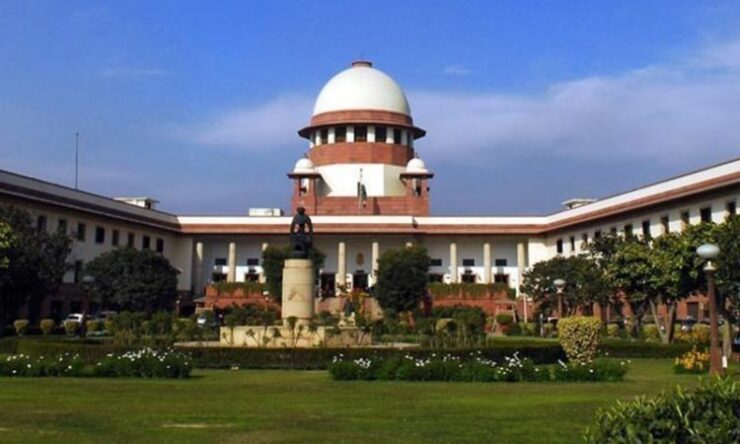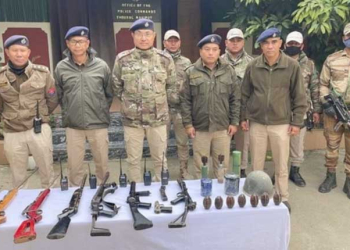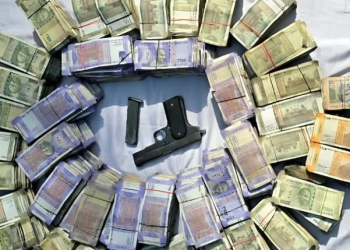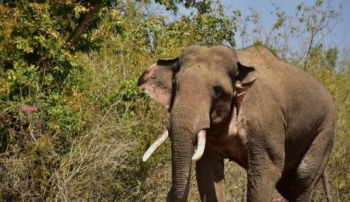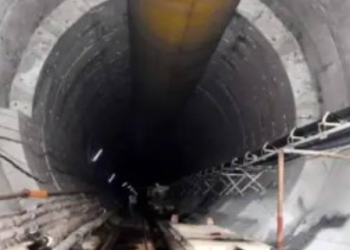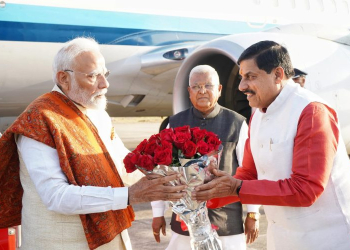New Delhi: The Opposition claims the ruling dispensation is deploying a dizzying array of chicanery to muzzle their voices against various policies of the government — the rampant use of investigative agencies like the ED, CBI, I-T department etc., against political opponents.
These allegations have become stronger over the years and also tested the judiciary –whether it becomes stronger and independent, or wears down under such extraordinary political pressure.
Against this backdrop, the Supreme Court has made it crystal clear that it is not a political organ of the state, rather it is independent and firm on strengthening the rule of law. The apex court has also minced no words while criticising the investigative agencies for using the law as a weapon.
In May 2013, during the UPA government, a bench of the Supreme Court — while hearing a coal scam case — slammed the CBI, saying the agency had become a “caged parrot” speaking in the voice of its political masters.
These remarks echoed the inherent independence in the judiciary, and after a gap of nine years, the Supreme Court has not withered down its stand on rule of law, and the judiciary is only answerable to the Constitution.
Chief Justice of India N.V. Ramana, during a felicitation organised by the Association of Indian Americans on July 1 in San Francisco, said the party in power believes that every governmental action is entitled to judicial endorsement.”
The parties in opposition expect the judiciary to advance their political positions and causes. This flawed thinking of all hues flourishes in the absence of proper understanding among people about the Constitution and the functioning of the democratic institutions,” said Justice Ramana, adding that judiciary is answerable to the Constitution and Constitution alone.
The Opposition has faced the wrath of the stringent Prevention of Money Laundering Act (PMLA). The political opponents of the ruling dispensation claim ED is using PMLA as a weapon.
In December 2021, a bench headed by Justice Ramana pulled the ED for its ‘indiscriminate’ use of the PMLA, and observed that the law should be used in a reasonable manner, not as a weapon. Though these observations were made during the hearing of a plea filed by a steel company, the message was loud and clear that the court does not favour indiscriminate use of the law.
In 2017, the Supreme Court struck down a provision which can deny an individual bail even if there is reasonable ground to believe that he or she did not commit money laundering offence. The top court declared Section 45(1) of PMLA of 2002, violated the fundamental rights to equality, personal liberty, and life guaranteed under the Constitution.
In April 2022, Chief Justice N.V. Ramana, while delivering a lecture, said political executive will change, but the CBI as an institution is permanent and it should remain impermeable and independent. Justice Ramana emphasized that the need of the hour is for police to reclaim social legitimacy and public trust, and for that, break the nexus with the political executive.
The chief justice’s remarks ring a bell — Vineet Narain vs Union of India case (1997), popularly known as Jain Hawala case. In this case, the apex court dealt with the issues of autonomy of CBI and other special investigating agencies, which failed to investigate powerful politicians, high ranking officials, and criminals.
The case led to structural changes in the CBI, including a minimum two-year tenure for the agency’s director. The court also expressed disappointment over ordinances empowering the central government to appoint the CBI and ED chiefs for up to five years.
The Opposition claims there is a long laundry list to establish a trend that just before any election, agencies — CBI, ED and Income Tax Department — swing into action.
The Opposition says they issue summonses in old cases; conduct raids and searches, and also make arrests, but the entire process does not culminate into a concrete case. These cases burden the judicial docket and a high decibel political clamour is created. However, the frenzy generated by such cases have not tarred the independence of the judiciary.
In May 2022, the apex court agreed to grant protection to Trinamool MP Abhishek Banerjee and his wife, in connection with a money laundering case linked to the alleged West Bengal coal scam.
Banerjee moved the top court against the Delhi High Court’s order, which dismissed their challenge to the ED’s summons issued in the matter.
The apex court has given a pummeling to investigative agencies, where it appears their action is contrary to the rule of law. Also, the ethos of rule of law is further strengthened, when the Chief Justice says the judiciary is only answerable to the Constitution and Constitution alone.
(IANS)



